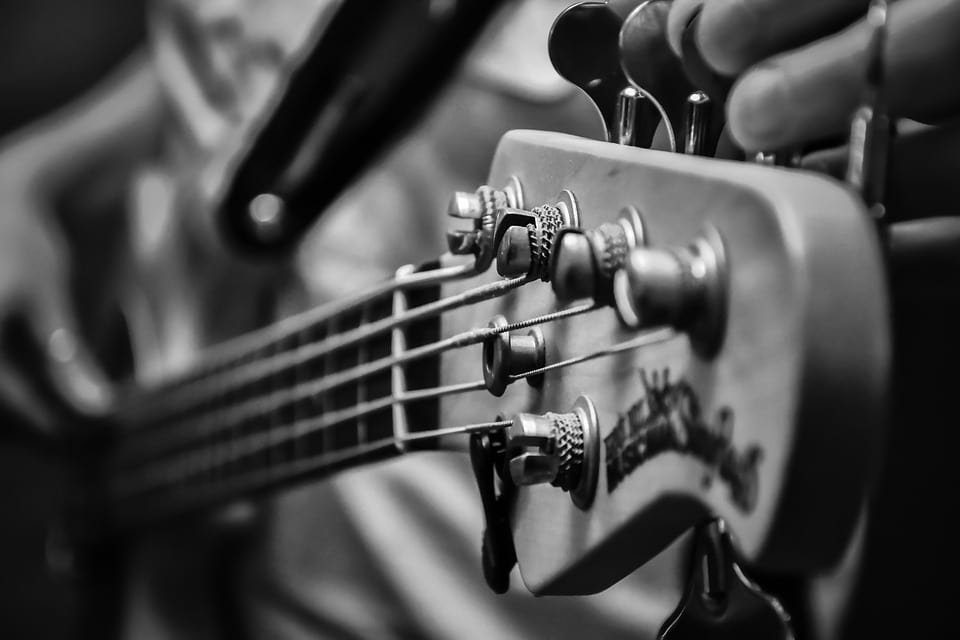When I was a kid, my parents had a comedy record called You Don’t Have to be Jewish, which had a couple dozen bits, including “The Presidents.” In “The Presidents,” the presidents of the United States and of Israel are chatting. The president of the US says (in a Texas drawl), “Mr. President, you must realize that I’m the president of 200 million people.” (The record was recorded in 1965.) The president of Israel says, “Yes, Mr. President – but you must realize that I’m the president of 2 million presidents.”
Why am I telling you this? One day I got an email from Paul McGowan, who wrote, “Idea for you – and maybe this is just me being stupid. What’s a bass instrument for? Drums keep the beat, guitars handle melody or rhythm. Might make for an interesting series.”
It’s hard to remember what I used to think, though I’m sure I must have thought the way Paul did at some point. If you listen to a piece like “Regiment” on Brian Eno and David Byrne’s My Life in the Bush of Ghosts, it’s not hard to imagine the bass as the deepest point in an inverted pyramid that everything else swirls around. I remember thinking like that, and it still might come in handy.
But there’s another kind of idea about playing music that has come to the fore in my mind over the last 25 years. Josef Zawinul once said of his group Weather Report (paraphrasing), “Nobody solos and everybody solos.” This was especially true of the early years of the band in the 1970s, when in addition to he and Wayne Shorter (saxophone), some of the other members included Miroslav Vitous or Al Johnson (bass), and Alphonse Mouzon, Eric Gravatt (praise him with great praise!) or Ishmael Wilburn on drums.

But the same could be said of the Grateful Dead in that same period, the “turn-on-a dime” Grateful Dead, when they were at their leanest and most nimble. Even though they apparently had specified musical roles, the way those roles worked together was different than every other in rock and except those that came from the same scene. And THAT’s where I live, musically.
Some good examples of what I’m thinking of are Weather Report’s “Unknown Soldier” from I Sing the Body Electric, or “Nubian Sundance” from Mysterious Traveler. Or sides 5 and 6 of the Dead’s Europe 72 live album, comprised of “Truckin’” through instrumentals they titled “Epilogue” and “Prelude” into “Morning Dew.” If you ever saw either of these bands live you know what I’m talking about. The music becomes more about time than anything else.




